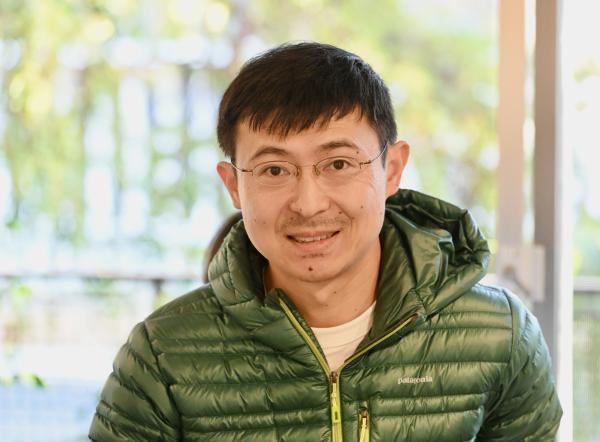2023 LCLS Users’ Recognition Award
During the annual SSRL/LCLS Users’ Meeting in September, Diling Zhu received the 2023 LCLS Users’ Recognition Award. This award, which is in its second year, recognizes LCLS facility staff who have made significant contributions to the user community by supporting experiments or advancing the facility through their scientific area of research, instrumentation or capability development.

Zhu, who started at SLAC as a graduate student 18 years ago, is the deputy division director for X-ray and Electron Methodology in LCLS’s Science Research and Development (R&D) Division. He also manages the LCLS photon science R&D program.
Over the years, Diling has been seeking the best ways to put together all of SLAC’s “experiment gadgetry,” like X-rays, lasers, optics, samples and sample environments, and controls and data acquisition tools, to produce the highest-quality data possible for each experiment at LCLS.
“It’s getting to learn the technical wonder behind each building block and then using our creativity to build systems to get the best result and data,” he explains. "You have to think hard about how to get everything working in sync and on time for each beam time. It's orchestrating a lot of equipment and human activities, and there's usually one chance to make it right.”
For example, one experiment he helped conduct included incorporating a high field-strength electromagnet (a >30 tesla magnet) system for the first time with an X-ray free electron laser to study superconductors. The electromagnet came from collaborators in Japan, and the precious sample came from a leading sample growth laboratory in Canada. It took nearly two years of preparation and working closely with teams from the Stanford Institute for Materials and Energy Sciences (SIMES) and SSRL, as well as Argonne National Laboratory, to bring new hardware and software together at the X-ray Correlation Spectroscopy (XCS) instrument. Then they had to orient the sample at an extremely low temperature, generate the extremely high magnetic field and detect and visualize the X-ray signal in the right condition at the right time.
“It was a lot of expertise and experience converging in space and time that led to magic moments, when seemingly against all odds, everything worked in harmony, and we caught the first glimpse of new physics.”
Diling notes that it’s a privilege to help leading experts in different fields realize their new experimental ideas: “Our scientists also treasure the privilege to be at the steering wheel of our incredibly sophisticated experimental infrastructure, made possible by a lot of dedicated staff behind the scenes. But that privilege translates to a huge responsibility too, which scientists at LCLS take very seriously. I think that is a key cultural element that has led to LCLS’s successful user operations thus far.”
How to nominate your colleague
LCLS facility staff at any level are eligible to be nominated for the award, including instrument, laser, data, detector, sample environment, controls, technical support, and accelerator/FEL staff, as well as members of the User Office. An announcement will be sent out in the spring asking SLAC staff and members of the user community to submit nominations for next year. The winner will be selected by the LCLS Users’ Executive Committee and recognized during the 2024 Users’ Meeting. The award consists of a $1,000 prize and an award plaque.
